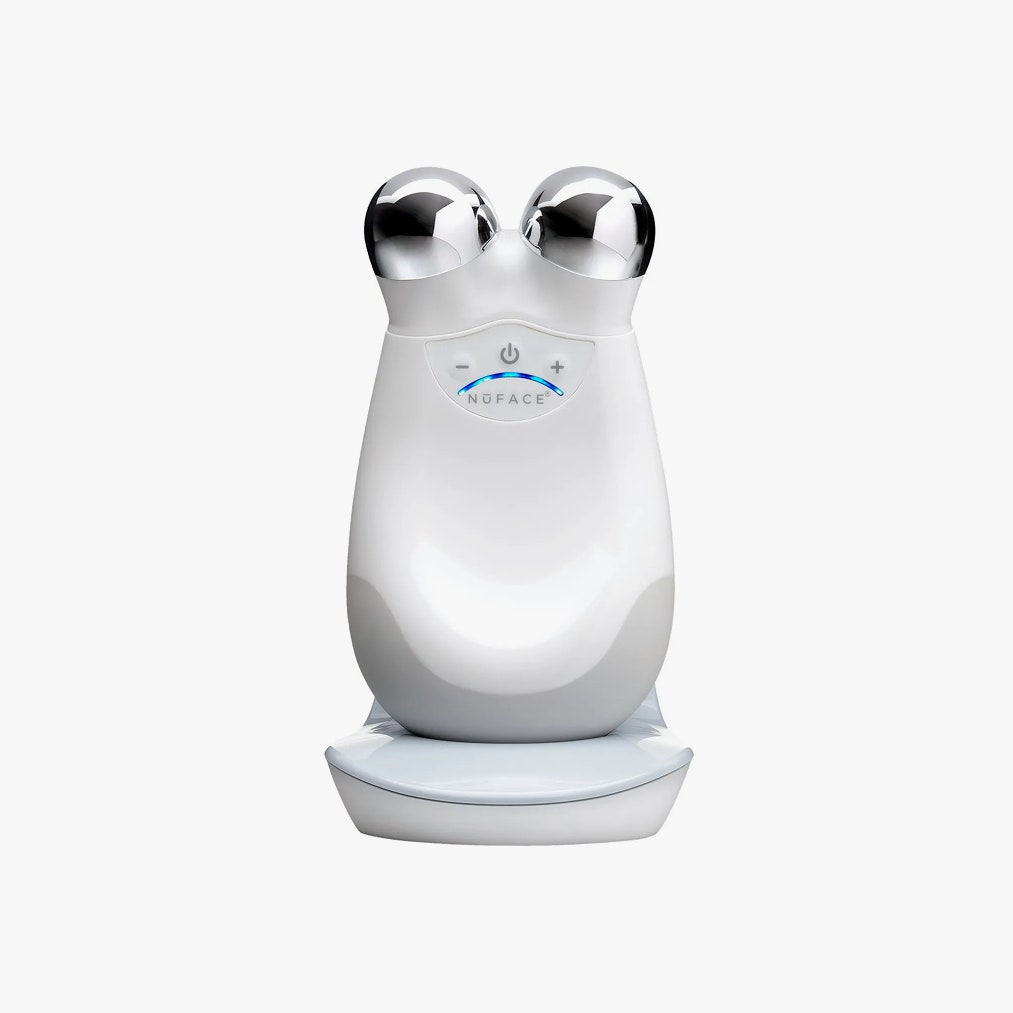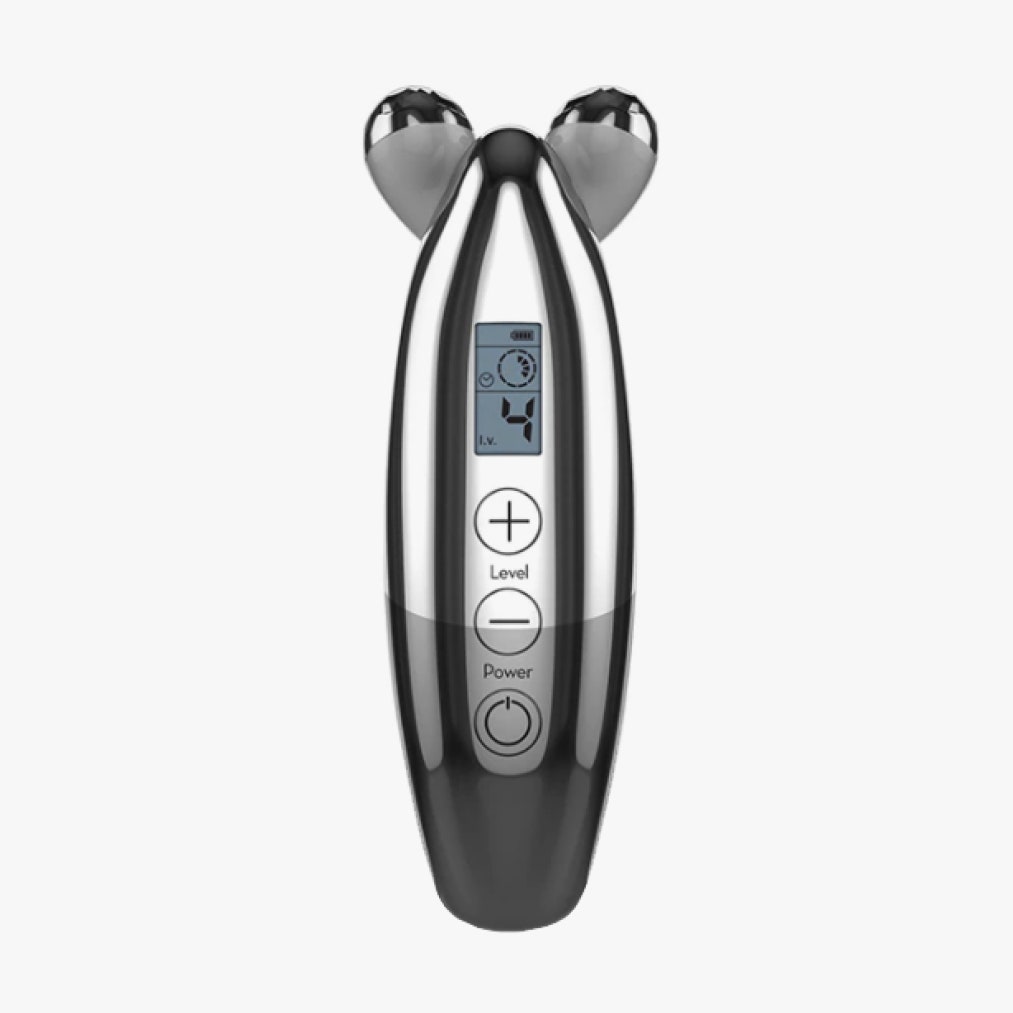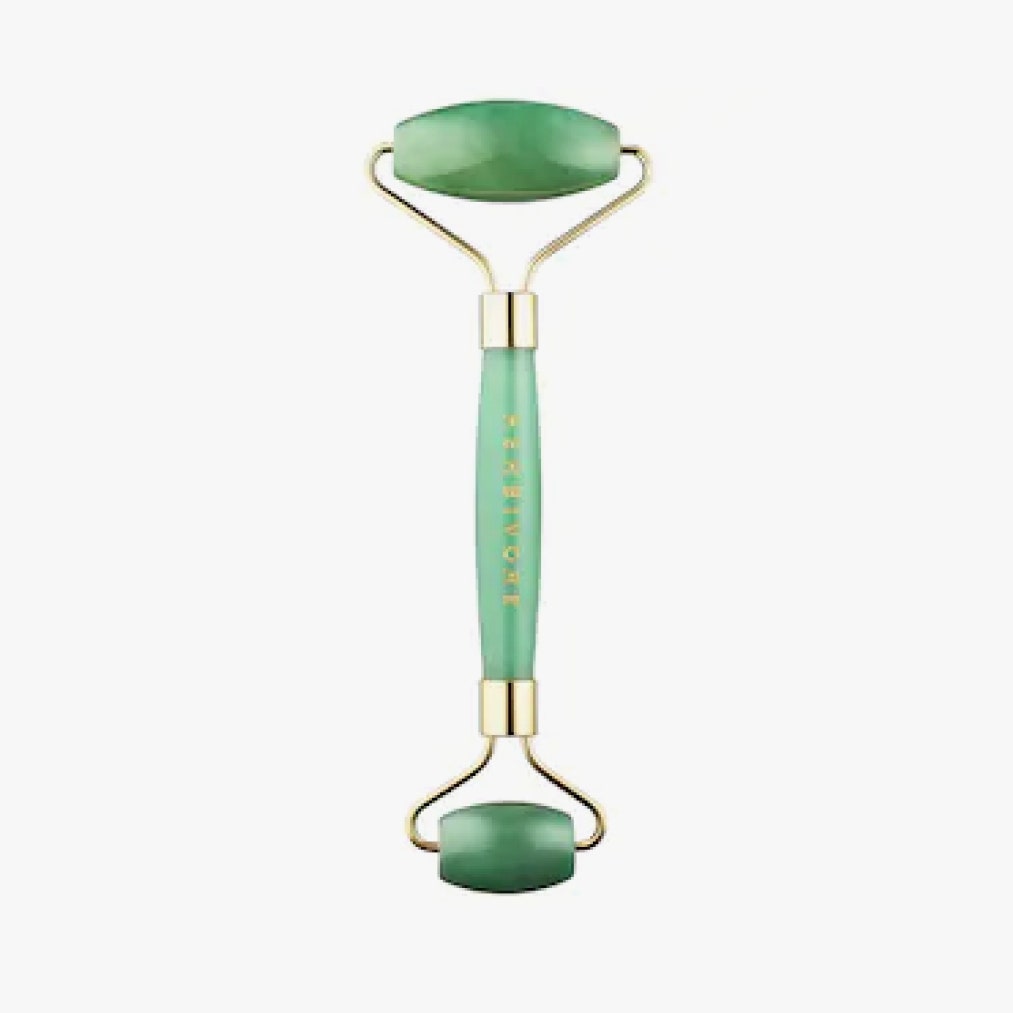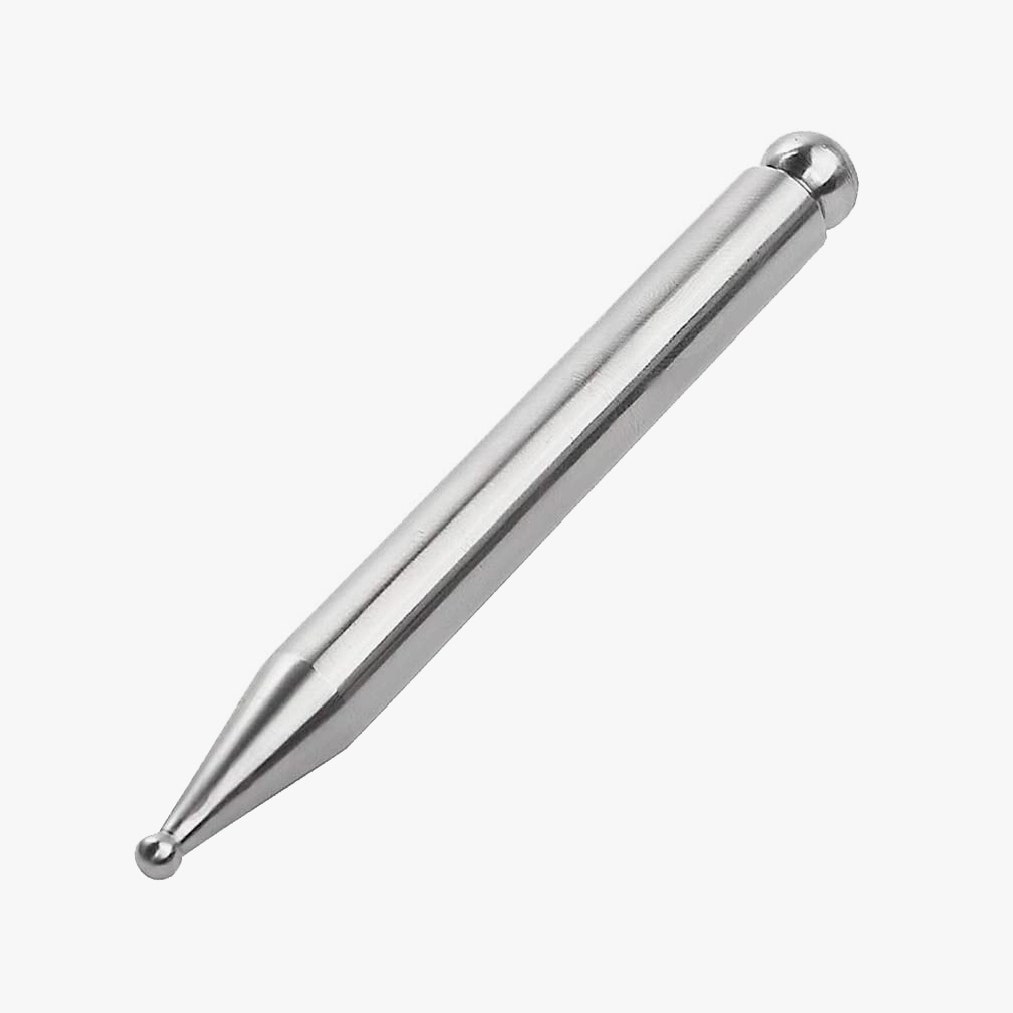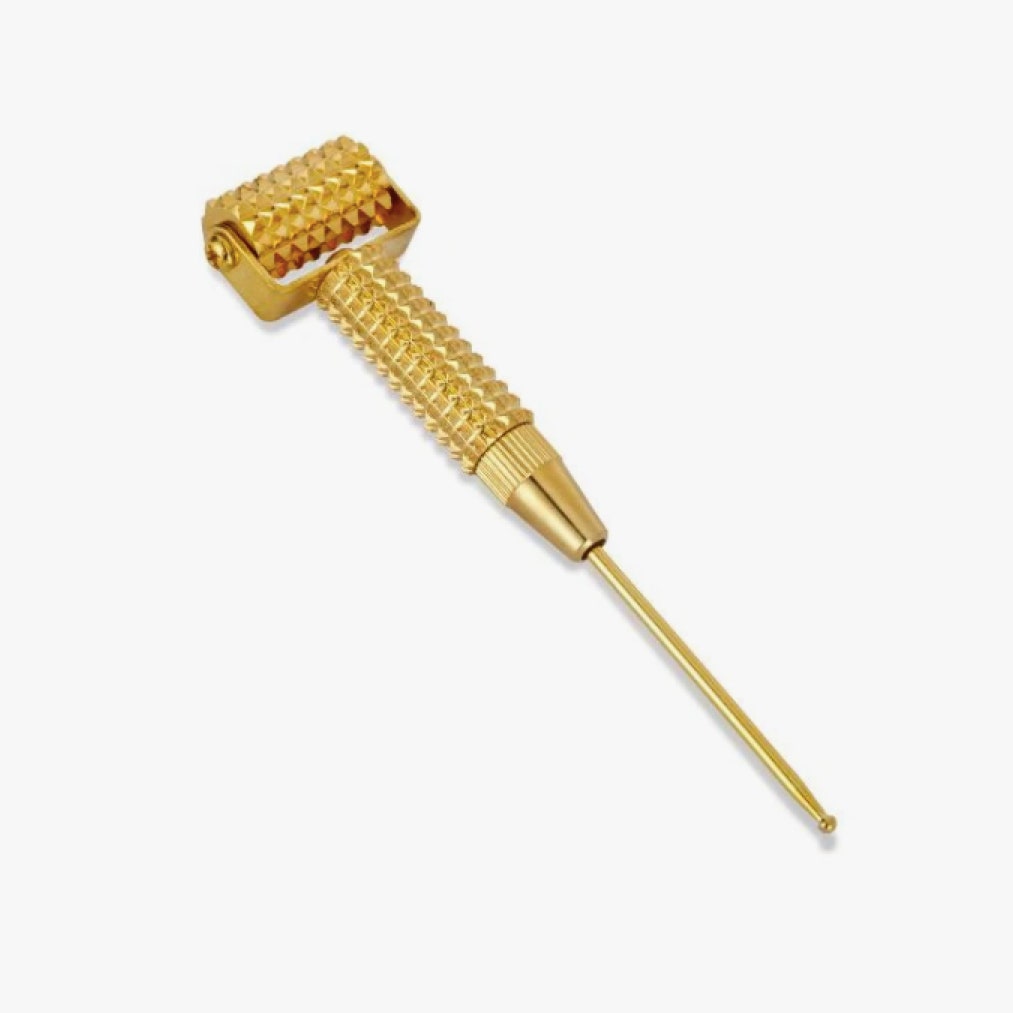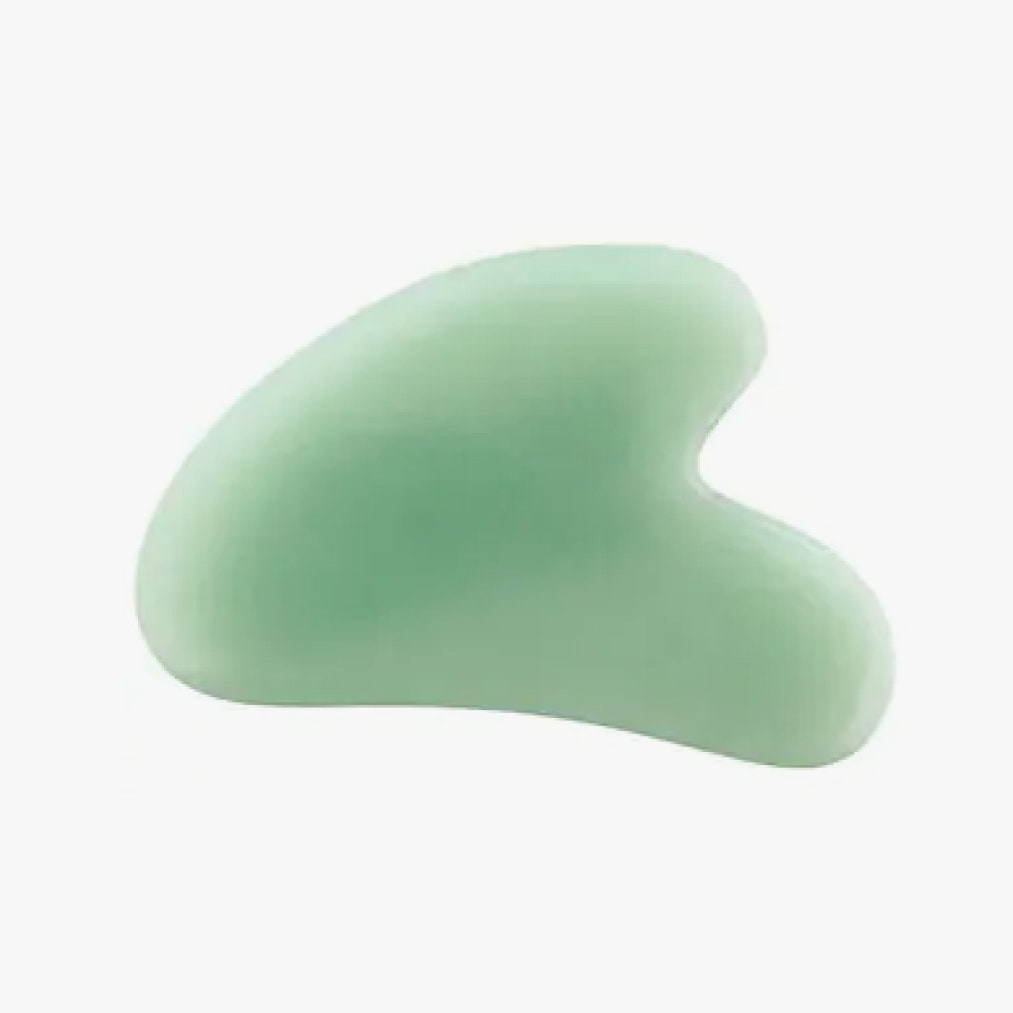Fashion
Why Facial Massage Is the Skin-Care Habit I’m Committing to in 2021
Why one Vogue writer is obsessed with working those teeny, tiny facial muscles….


Since the pandemic began, my Instagram feed has been filled with face workouts and face tools. Every other scroll, I see someone gua sha–ing their face for a lymphatic massage, or another blowing their cheeks Dizzy Gillespie–style to work their muscles. Then there are all the tools that are marketed towards me: a tiny gilded piece that looks like a paint roller with spikes, a micro-current tool that resembles a sex toy and sends shocks through the skin to tone muscles, and a thin metal stick with a ball at the end to stimulate different muscles as an exercise of facial reflexology and detox. The before-and-afters are particularly mesmerizing: nasolabial folds are lifted, undereye bags are gone, and jowls are smoothed. Call it the era of the au naturel nip-tuck.
I’ve no doubt been influenced: Every morning, I start with a general lymphatic massage from the collarbone up with a face oil (during which I can literally feel the fluid draining from my face). Next, I use a mix of lessons from the Glowbe app and various Instagram instructors to do an at-home 30-minute face workout, which includes me making bizarre facial movements and using my hands to aid the stimulation of muscles. (Gravity is crucial here: Never down, only up.) Then, I use a fist-size jade gua sha tool to drain any excess fluid, followed by a beauty roller that I use to further knead my face and chest. Finally, as the icing on the cake, I use a micro-current tool that sends satisfying, pinch-like shocks into my face. The end result reveals me to be a de-puffed, sharp-cheeked goddess, particularly ideal when Zoom seems to catch every unflattering angle.
I’m not the only one who has caught onto the trend. My coworkers are constantly texting about different variations of gua shas and face-zapping tools. It’s like collecting Pokémon cards: There is a new update on a tool every week, and we have to catch them all. My facial-workout obsession reached new heights during lockdown, when the lack of a commute meant I finally had the time to take 30 minutes out of my morning to do a meaningful amount of above-neck reps after my full-body fitness routine. This type of dedication is common among fans of FaceGym, a studio that offers face-sculpting sessions featuring special massage techniques. The company reports that its online sales (including both online classes and products) are up 700% year to date.
For those not quite ready to commit to a gym, there is a slew of Instagram accounts dedicated to facial massage and workout how-tos. Anastasia Burdog, 40, of @anyclass.faceonline boasts more than two million followers, and uses a tightening-and-release technique often referred to as “face gymnastics.” She offers her classes in Russian, but you don’t have to understand the language to get the gist of the instruction. (Plus, the before-and-after images will convert anyone into giving their visage the Liberace treatment.) Then there’s 30-year-old Karina Trigubchak of Ukraine, whose skin is as smooth as a baby’s palm. While she has only been publicly active on her account for about a year, she has been practicing facial exercise for more than five years. “The essence of my course is very different from massage or face fitness. Face fitness pumps the muscles of the face, which is essentially not correct,” she writes in Russian. “All problems, such as expression wrinkles, creases on the face, are due to spasmodic and shortened muscles. Therefore, my technique is aimed at relaxing the muscles of the face.” Call me a sucker, but whenever I have a moment, I find myself pinching my eyebrows à la Trigubchak in the hopes of widening my eyes.
The results of all this exercise are evident to me, but does the science back it up? I’ve heard skepticism around my very long morning facial routine, mostly from my mother and friends who are constantly questioning whether the results are permanent. But cosmetic and medical dermatologist Hadley King notes that there is evidence in several studies that these facial workouts, well, work out in the long-term. She does note, however, that those studies involved informed technique: “The subjects were following a specific and rigorous massage methodology and it wasn’t some just haphazard rubbing.” To that end, King suggests that better data is needed to support the magic of facial workouts. “We don’t understand all the mechanisms,” she says. “[But] there is some limited data that shows that there might be real results from these things.” While I wait for the additional assurance that my routine is backed by robust data, I’ll still be kneading my face every morning—that killer concave silver in my cheek doesn’t lie.
Fashion
Raekwon Unveils “The Emperor’s New Clothes” With All-Star Lineup

Raekwon, a legendary rapper known for his role in the Wu-Tang Clan, has just announced his long-awaited eighth studio album, titled “The Emperor’s New Clothes,” set to be released through Mass Appeal. Although no singles have been shared yet, the album is already creating a buzz and is highly anticipated this summer. It’s been seven years since Raekwon last released a solo album, and this new project feels more like a grand return than just another release.
He’s teamed up with a mix of familiar faces from the Wu-Tang Clan and some fresh talent in hip-hop. Listeners can look forward to clever lyrics and captivating stories filled with raw emotion. Raekwon has invited his Wu-Tang brothers Ghostface Killah, Method Man, and Inspectah Deck to feature on the album, ensuring a classic blend that fans love. He’s also brought in well-respected artists outside of the Wu-Tang family, like Nas and members of the Griselda collective, Westside Gunn, Benny The Butcher, and Conway The Machine, who are known for their gritty style.
Adding to the variety, singers Stacy Barthe and Marsha Ambrosius will provide soulful vocals to complement Raekwon’s hard-hitting verses. The album’s production features talented names like Swizz Beatz, Nottz, J.U.S.T.I.C.E League, Frank G, and Roadsart, promising a rich, cinematic sound that matches Raekwon’s lyrical skills. Even with such an impressive lineup, there’s still a sense of mystery around the album. There have been no early songs or previews released, just the announcement itself, which builds even more expectation.
But for Raekwon, this is part of his journey. He has always delivered powerful lyrics and relatable street stories without much introduction. The title, The Emperor’s New Clothes, suggests a fresh start and a daring vision that might challenge the current state of rap. With his experienced flow and storytelling still sharp, Raekwon seems prepared to reestablish his place among the top artists in hip-hop.
Fashion
Wendy Williams Makes Stylish Splash At Columbia Supporting Her Designer

In a delightful surprise for fans and fashion enthusiasts, Wendy Williams made a rare appearance at Columbia University on Tuesday, and everyone couldn’t help but notice her. The former talk show host was in high spirits as she showed up to support her longtime friend and fashion designer, Mel Maxi. Wendy looked fantastic in a stylish black-and-white outfit that included a Yankee hat and her trademark flair.
Designed by Maxi himself, her outfit was not just chic but also had a personal touch that highlighted her vibrant personality. In a heartwarming moment recorded on video, Wendy told Maxi, “This is amazing! This was specifically designed for me… this is really hand done.” Wendy came to cheer on Maxi, who was set to give a lecture about fashion design at the prestigious university. Her appearance was a meaningful moment between two creative friends who have supported each other for years. Wendy’s presence emphasized the importance of friendship and collaboration in the creative world.
As she walked by, a nearby fan shouted their love for Wendy, and she instinctively responded with her signature warmth and enthusiasm: “Thank you!” she exclaimed with a big smile. After being away from the spotlight for months, Wendy’s visit was a refreshing change for fans who have missed her lively spirit. There were no fancy events or flashing cameras, just Wendy enjoying the moment, supporting a friend, and reminding us all of the significance of showing up for the people we care about.
-

 Artist Spotlight6 days ago
Artist Spotlight6 days agoGOODTWIN shares reflection with indie-pop single, “Soak It Up”
-
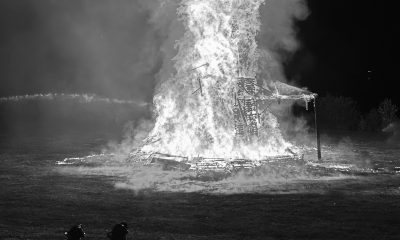
 Artist Spotlight4 days ago
Artist Spotlight4 days agoSAMSARA transforms quiet heartbreak into a modern rock journey on latest release “mrs. porter”
-

 Artist Spotlight4 days ago
Artist Spotlight4 days agoTom Woodward exposes the dark side of modern idol worship in latest release “PHONEY MESSIAH”
-

 Artist Spotlight4 days ago
Artist Spotlight4 days agoMORPHEUS VON DOBENHAUSEN lets go of the chaos, dancing steady soft and slow in latest release “GOODBYE CHAOS”
-
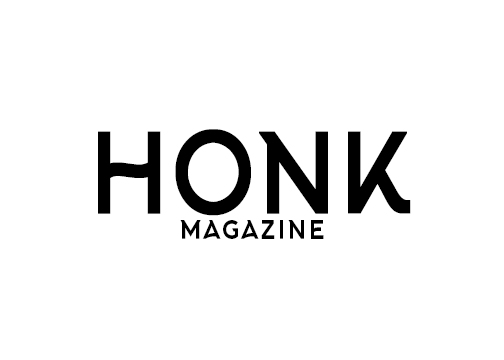
 Artist Spotlight4 days ago
Artist Spotlight4 days agoSkillMusicsa speaks in silence when love fades with latest release “How Could You”
-

 Artist Spotlight4 days ago
Artist Spotlight4 days agoSavvie steps out with an anthem of power and perseverance on latest release “Incredible”
-

 Artist Spotlight2 days ago
Artist Spotlight2 days agoBilly Chuck Da Goat turns walking away into a bold statement in latest release “Road Jack”
-

 Artist Spotlight2 days ago
Artist Spotlight2 days agoMamas Gun and Brian Jackson shines light on the truth on latest release “DIG!”

